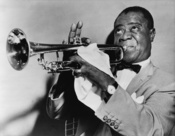The First Amendment of the U.S. Constitution reads, "Congress shall make no law respecting an establishment of religion, or prohibiting the free exercise thereof; or abridging the freedom of speech, or of the press; or the right of the people peaceably to assemble, and to petition the Government for a redress of grievances."1 It has been cited time and time again by individuals ranging from those fighting for civil liberties to those who are just providing entertainment. The First Amendment defines freedom, it defines individuality, it defines 'America.' Surely there is no group powerful enough to defy the Constitution.
Well unfortunately, there is one group with such a power. This group's sole purpose is to regulate the media and the messages it sends. This group is the Federal Communications Commission (FCC for short). It was created by the Communications Act of 1934 to regulate "interstate and international communications by radio, television, wire, satellite and cable," and its five Commissioners are appointed directly by the President of the United States.2
By law, the FCC is technically not allowed to interfere with or censor individual programs, but does have the power to challenge the "public interest, convenience, and necessity" of a radio station when the time comes to renew its license.3
The power of the FCC has been greatly expanded due to the technological limitation of radio waves. There are a limited number of radio frequencies, so the FCC was given control in order to promote quality programming and to prevent multiple signals on the same frequency.3 This means that not only does the FCC have jurisdiction of the AM and FM bands of radio and broadcast TV, but it also has control over everything from microwave ovens to garage door openers.2 Just about everything that sends or receives electronic signals needs...


